Are there things that you just aren’t allowed to talk about at family gatherings over the holiday period?
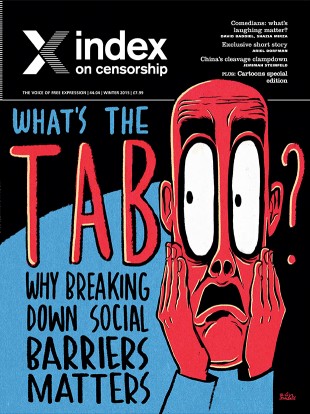

Are there things that you just aren’t allowed to talk about at family gatherings over the holiday period?

To mark the launch of the Music In Exile Fund, Index on Censorship has compiled a reading list of articles that have appeared in the magazine since 1982 and deal with censorship and music
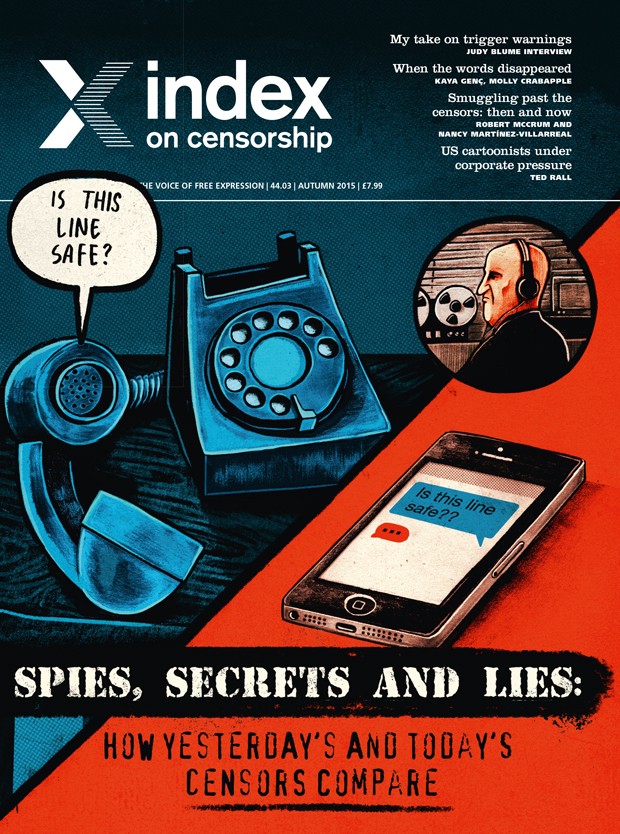
Argentina’s press freedom has come a long way since its junta sought to silence criticism by killing journalists. But is it free of censorship?
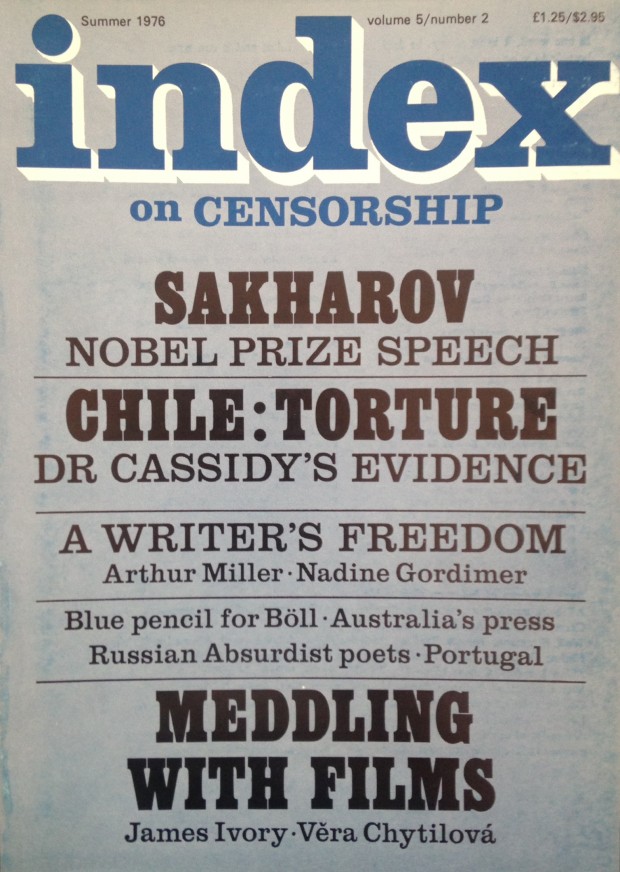
US playwright Arthur Miller, author of Death of a Salesman and The Crucible, was born 100 years ago on Saturday 17 October
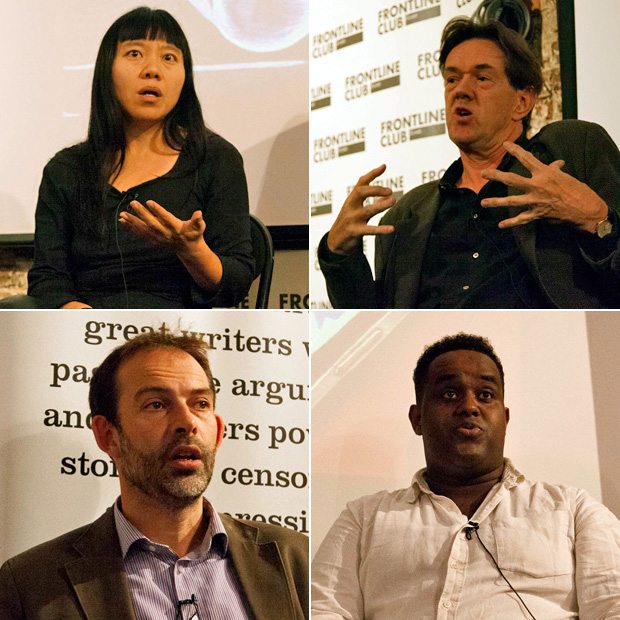
Are the challenges of censorship, subterfuge and propaganda greater or lesser than they were in previous decades? Who are modern technological advances really empowering? It was a full house last night at the Frontline Club for the launch of Spies,...

Have we created a media culture where politicians fear voicing an opinion that’s not the party line? Max Wind-Cowie reports
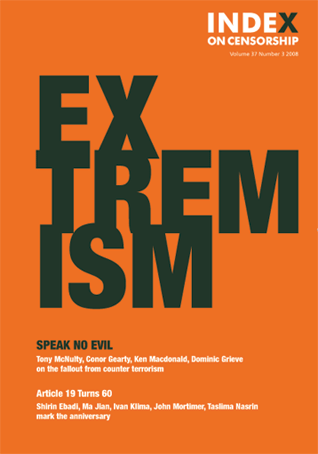
In the drive to tackle extremism, debate is being undermined and fear is driving the agenda. Conor Gearty makes the case for common sense.
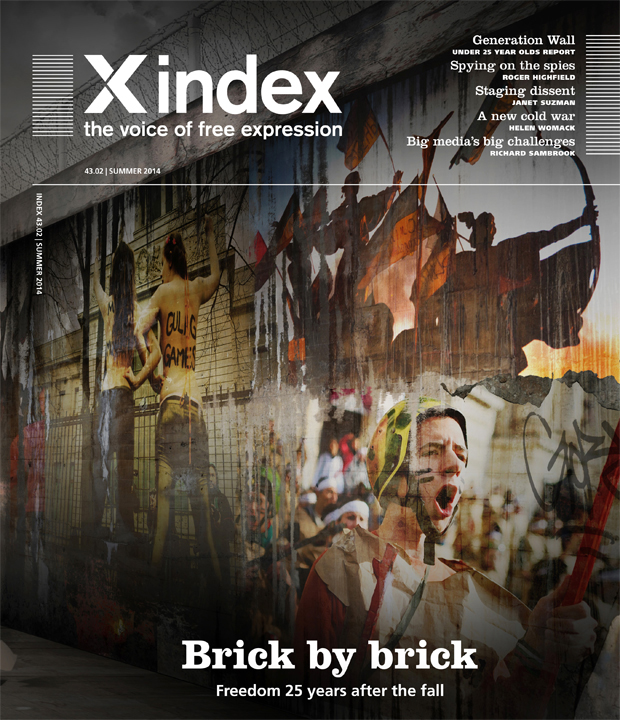
Should concerns about privacy after the NSA revelations change the way we use the web? Jason DaPonte asks the experts about state spying, corporate control and what we can do to protect ourselves
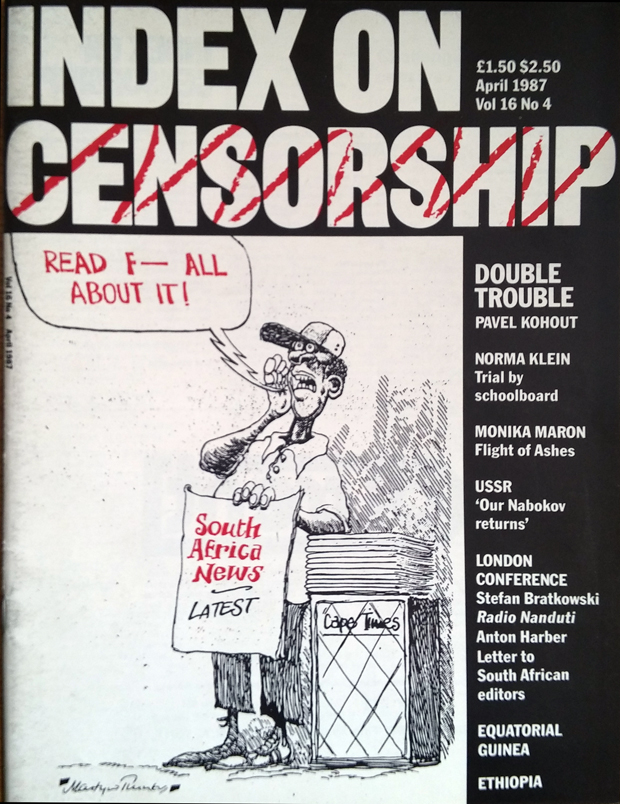
Norma Klein, the American writer of children’s books, describes how she successfully defended her Confessions of an Only Child before a school board meeting
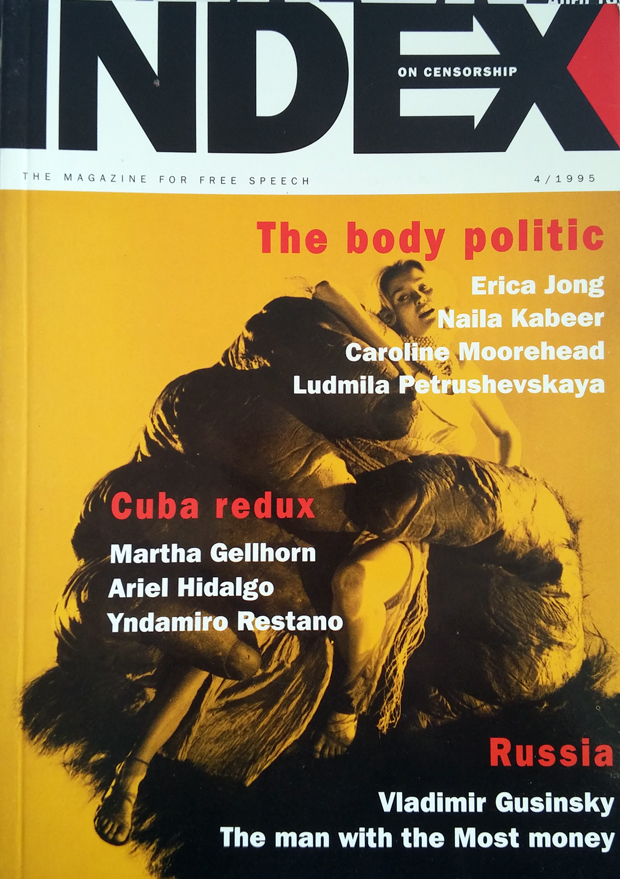
Pornography is to art as prudery is to the censors
A quarterly journal set up in 1972, Index on Censorship magazine has published oppressed writers and refused to be silenced across hundreds of issues.
The brainchild of the poet Stephen Spender, and translator Michael Scammell, the magazine’s very first issue included a never-before-published poem, written while serving a sentence in a labour camp, by the Soviet dissident Aleksandr Solzhenitsyn, who went on to win a Nobel prize later that year.
The magazine continued to be a thorn in the side of Soviet censors, but its scope was far wider. From the beginning, Index declared its mission to stand up for free expression as a fundamental human right for people everywhere – it was particularly vocal in its coverage of the oppressive military regimes of southern Europe and Latin America but was also clear that freedom of expression was not only a problem in faraway dictatorships. The winter 1979 issue, for example, reported on a controversy in the United States in which the Public Broadcasting Service had heavily edited a documentary about racism in Britain and then gone to court attempting to prevent screenings of the original version. Learn more.